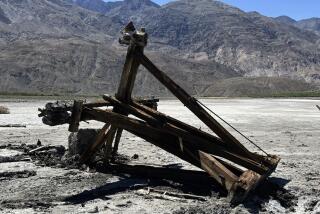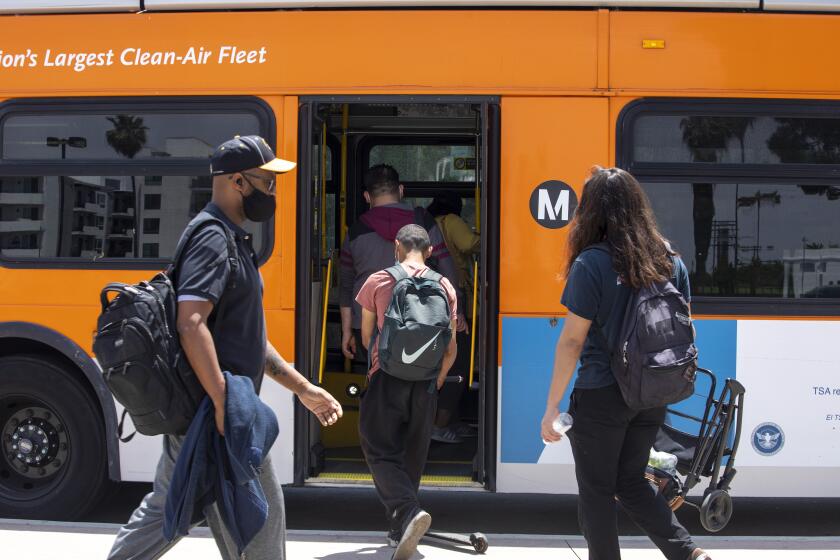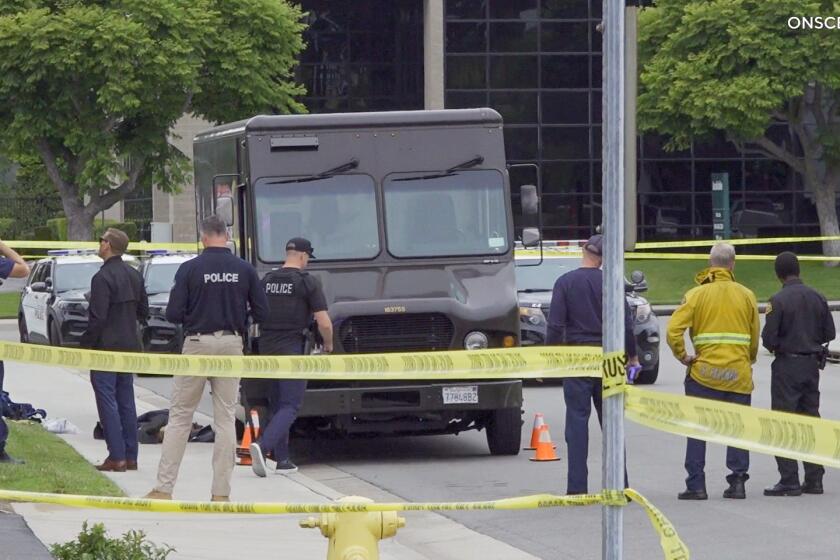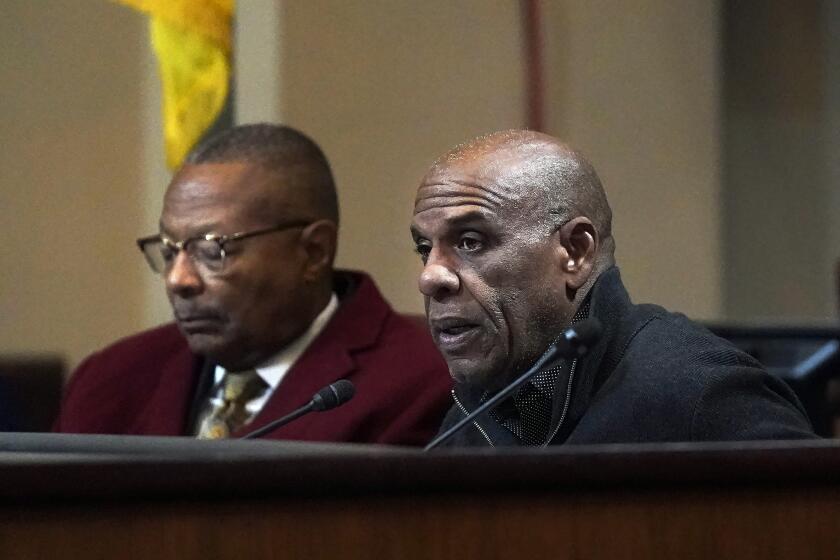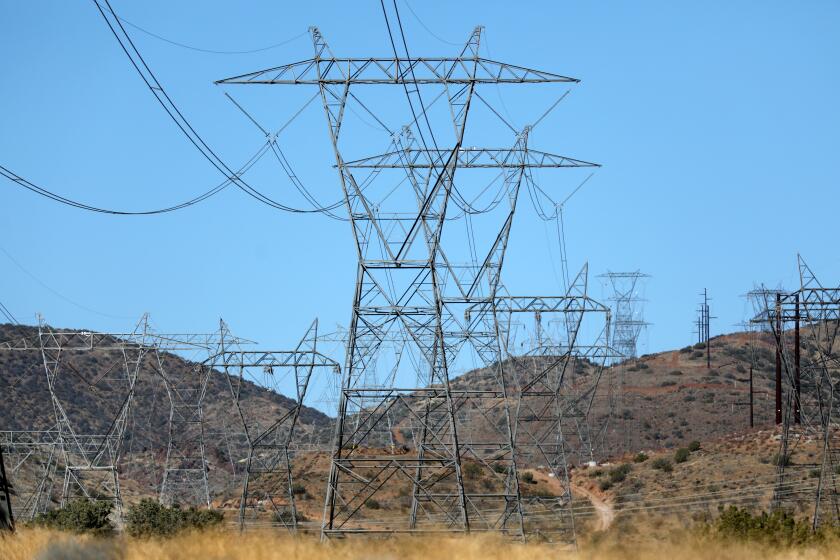Man Having Heart Attack Filmed : Trial Allowed in Suit Over Documentary
On the night of Oct. 30, 1979, a KNBC television crew preparing a documentary series followed a Los Angeles City Fire Department paramedic team into a Wilshire District apartment where Dave Miller, about 60, had suffered a heart attack in his bedroom.
The paramedics were unable to save Miller, and he died that night at a nearby hospital.
While the rescue crew worked desperately over her husband, a frantic Brownie Miller was escorted by a police officer to another room, apparently unaware that the scene was being videotaped.
She discovered it late the next month when she was flipping television channels looking for a soap opera to watch and stumbled across a promotional segment that showed her husband dying. She screamed and turned off the TV set.
Suit Filed
She and her daughter, Marlene Belloni, who saw the scene on the 6 p.m. news at her Laguna Beach home, sued the National Broadcasting Co.; KNBC field producer Ruben Norte, who accompanied the videotape-and-sound crew, and the City of Los Angeles for trespassing, invasion of privacy and infliction of distress.
The plaintiffs wanted to know just how far reporters and photographers or television crews can go to cover stories when privacy is involved.
Los Angeles Superior Court Judge Charles E. Jones subsequently agreed with NBC that the dead man’s widow and daughter had no case because there was no evidence the television crew entered the apartment maliciously and that Brownie Miller “suffered no actual damage as a result of the alleged entry.”
Late last week, however, a three-judge panel of the 2nd District State Court of Appeal decided that Jones erred in awarding a summary judgment to the defendants and opened the door for a trial. Although they agreed that the daughter’s privacy was not invaded because she was not present, the appellate justices held that Brownie Miller has a right to take her case to trial.
In the opinion written by Judge L. Thaxton Hanson, the panel observed: “The obligation not to make unauthorized entry into the private premises of individuals like the Millers does not place an impermissible burden on news gatherers, nor is it likely to have a chilling effect on the exercise of First Amendment rights.”
To hold otherwise, the justices said, “might have extraordinarily chilling implications for all of us. Instead of a zone of privacy protecting our secluded moments, a climate of fear might surround us instead.”
‘Those Rights Prevail’
They added: “Others besides the media have rights, and those rights prevail when they are considered in the context of the events at the Miller home on Oct. 30, 1979.”
The managing editor of KNBC news, Pete Noyes, said that the documentary crew was trying to show the problems faced by paramedics, often confronted by blurry jurisdictional lines and that in following the rescue team into the apartment during the confusion of the emergency, “nobody asked us to leave.”
If someone asks a news crew to leave, Noyes said, “we automatically leave. We thought we were justified in doing this. We were at the doorway. We regret that there was trauma to the widow of the deceased, but nobody said we were out of bounds. Nobody asked us to leave the scene.”
In the view of Brownie Miller’s attorney, David L. Margulies, however, the KNBC crew “entered a private home without permission, and without anybody’s knowledge.”
In a deposition taken from field producer Norte, who has left KNBC for “Entertainment Tonight,” he pointed out that while following the paramedics around, he, his cameraman and soundman entered private residences 10 to 15 times.
About half of those times, he testified, someone asked what they were doing. He said he always told the questioner and that in no case did anyone object. He said that in the case of heart attack victim Dave Brown, he did not believe it necessary to obtain permission of family members to air the tape because Brown was not identified “verbally or visually.”
Both mother and daughter, however, recognized him.
Brownie Miller called Norte and demanded to know, “What nerve did you have to come into my home and invade my privacy and do the things that you did to disturb my whole household?”
To which Norte, who said he felt terrible about it, replied, “I’m sorry. I’m very sorry.”
More to Read
Start your day right
Sign up for Essential California for news, features and recommendations from the L.A. Times and beyond in your inbox six days a week.
You may occasionally receive promotional content from the Los Angeles Times.
